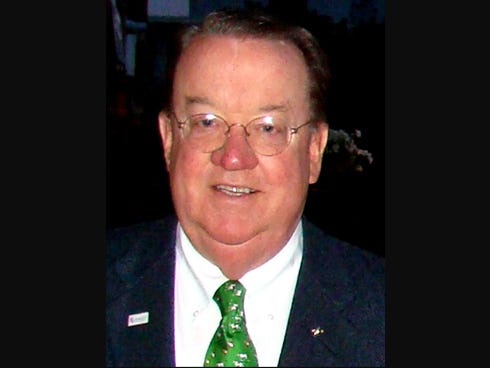
We all know it; leading the Department of Children and Families is a difficult and thankless job. Front-line jobs in the state’s child welfare system are even tougher.
The learning curve is steep, every lesson is hard and failure is too painful and costly.
In the wake of recent tragedies, everyone is searching for answers, trying to figure out what went wrong. From county sheriffs and local care providers to religious and community leaders, everyone wants to, and should, do whatever is necessary to prevent the loss of another child.
Getting all of these partners to work together toward this worthy goal isn’t easy, but it is essential. Repeatedly, we see that protecting vulnerable children is too big of a job for one person or one agency. We all have a part to play in solving this problem affecting our state; a philosophy that newly appointed DCF Interim Secretary Esther Jacobo has embraced.
Complex social problems like child abuse involve multiple interrelated risk factors that sometimes develop over generations of family dysfunction, generally rooted in poverty and lack of education.There is no simple, quick-fix solution to these issues; drastic overcorrections in our policies and practices following tragedies have made matters even worse.
While it is true that more must be done to recruit, train, supervise and retain qualified front-line staff responsible for responding to allegations of abuse, we will never achieve sustainable change in child protection services without significantly increasing prevention efforts that strengthen vulnerable families before abuse ever begins.
Strengthening parenting skills and improving family stability — sometimes even before the baby arrives — is paramount to eliminating many situations we have read about over the past few months. Most at-risk expectant and new parents realize they need help, but help isn’t always available before tragedy strikes.
Ensuring children are safe and nurtured at home, while stemming the tide of kids coming into state care, has been the work of Healthy Families Florida since its legislative inception in 1998. Administered by the private, nonprofit Ounce of Prevention Fund of Florida through a network of local providers, Healthy Families is the state’s preeminent child abuse prevention program. A rigorous independent evaluation revealed that Healthy Families is an effective prevention measure. Healthy Families prevents abuse and neglect for 98 percent of children in high-risk families served. Recent analysis shows that 95 percent of children served also remained free from abuse and neglect three years following program services.
For the past 15 years, the Department of Children and Families has been a supportive partner. Thanks to an additional $3 million legislative allocation this year, the blessing of Gov. Rick Scott and local partners’ support, Healthy Families’ reach has extended to serve additional families in parts or all 58 of Florida’s 67 counties — a big step in the right direction.
Bringing these proven prevention services to scale, so every at-risk family has access to the help they need, will require additional investment; but it is still far less costly than failure.
Healthy Families saves taxpayers millions of dollars in child welfare and other services needed to deal with the consequences of abuse; more importantly, it saves lives. Other changes to the child welfare system may certainly help to prevent more tragic deaths, but we know Healthy Families is a proven and effective up-front prevention program that helps lead us toward that important goal.
T. Wayne Davis is chairman of the board for the Ounce of Prevention Fund of Florida.
What's your view? Write a letter to the editor or tweet News Bulletin Editor Thomas Boni @cnbeditor.
This article originally appeared on Crestview News Bulletin: GUEST COLUMN: Child abuse prevention progress requires full participation of all partners
